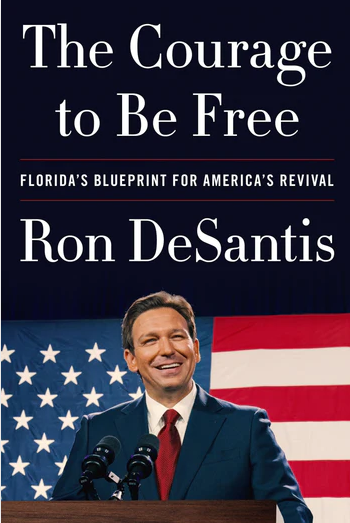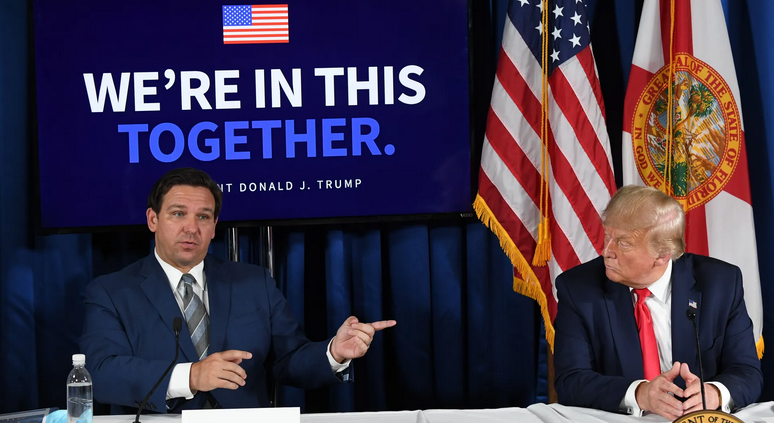On Mar. 1, the Conservative Political Action Coalition (CPAC) held its annual congregation of conservative thinkers, speakers and officials. The esteemed list of speakers included former President Donald J. Trump, Florida Rep. Matt Gaetz, one-time Trump staffer Steve Bannon and other such figures. Media coverage of this year’s CPAC conference focused on comments made by Daily Wire employee Michael Knowles, who has called for “the eradication of transgenderism.” However, as this conservative meeting of the minds came and went, Gov. Ron DeSantis has spent weeks on a high-profile book tour—a move many publications are implying is a smokescreen for early presidential campaigning.
The 2023 CPAC was arguably doomed from the start. A few months prior, allegations were made that CPAC Chairman Matt Schlapp had groped a male staffer working on Herschel Walker’s Senate campaign. This may have contributed to CPAC’s historically low turnout, but just as possible is that big Republican donors seem split between CPAC and Club for Growth, a Florida-based, closed-to-media private donor meet up that DeSantis opted to attend instead. Several key GOP figures, including DeSantis and former Vice President Mike Pence, attended the Club for Growth meetup instead, while presidential aspirant Nikki Haley attended both. Migration to Club for Growth left CPAC with holes in its flagship roster. Interestingly, Club for Growth has made it clear that it will not back Trump in the 2024 election unless absolutely necessary, while DeSantis has also distanced himself from Trump significantly.
Club for Growth wasn’t the only event the governor traveled to that week—he also made appearances across the country. In California, at Orange County’s Ronald Reagan Presidential Library, he delivered a speech where he decried the “woke mind virus” and advocated for aggressive immigration policy, rhetoric that otherwise has not been seen on the national stage since the Trump administration.

It’s not just California donors he’s courting, though. DeSantis’ book tour also took him to two different stops in Iowa, where he received a tremendously warm welcome. For many Republicans, he offers an alternative to Trump that doesn’t simply mean a return to politicians such as John McCain and Mitt Romney.
DeSantis saw a similarly positive reception in Alabama; the Alabama Republican Party’s annual dinner had to be rescheduled because he drew such a large audience. He drew huge crowds in Nevada as well, although some have criticized his position to allow a Nevada mountain to serve as a nuclear waste disposal area.
The mix of states DeSantis has visited thus far is eclectic, but it’s not hard to see the forest for the trees. Iowa, Nevada, Alabama, California and Florida—these states are very early in the Republican presidential primaries. An advantage here could easily win the governor the Republican nomination, even before many of the less prominent candidates like Haley are forced to drop out.
DeSantis has not made any official statements signaling his intent to run, despite widespread documentation of his presidential aspirations throughout the past several months. The why is unclear, although some publications have speculated that DeSantis has nothing to gain from making himself an even larger target to his main competitor for the nomination, Trump, and that the longer he can avoid facing too much of the one-time president’s ire, the more time he will have to build his popularity in the Republican Party base that the two men share.

